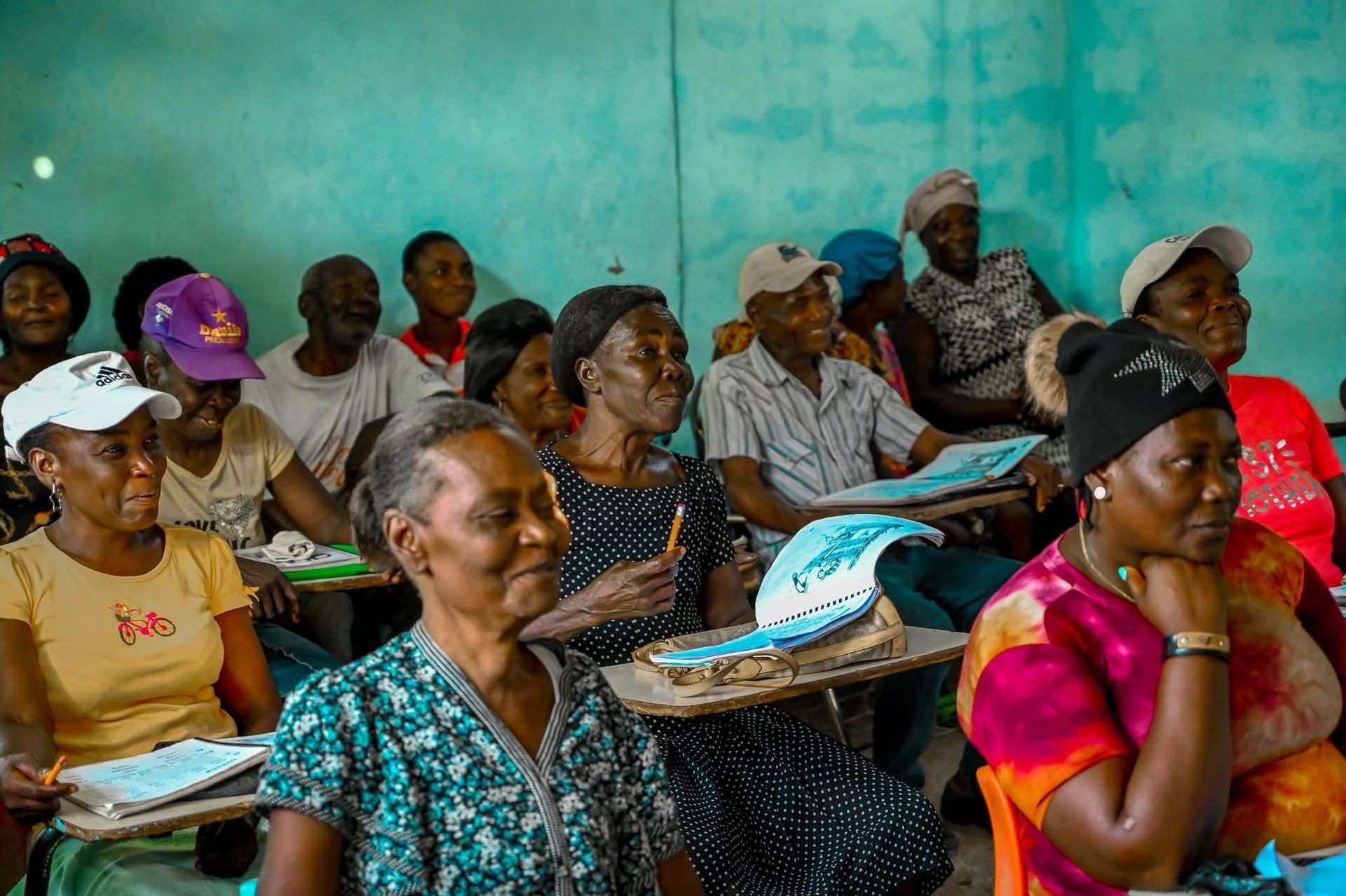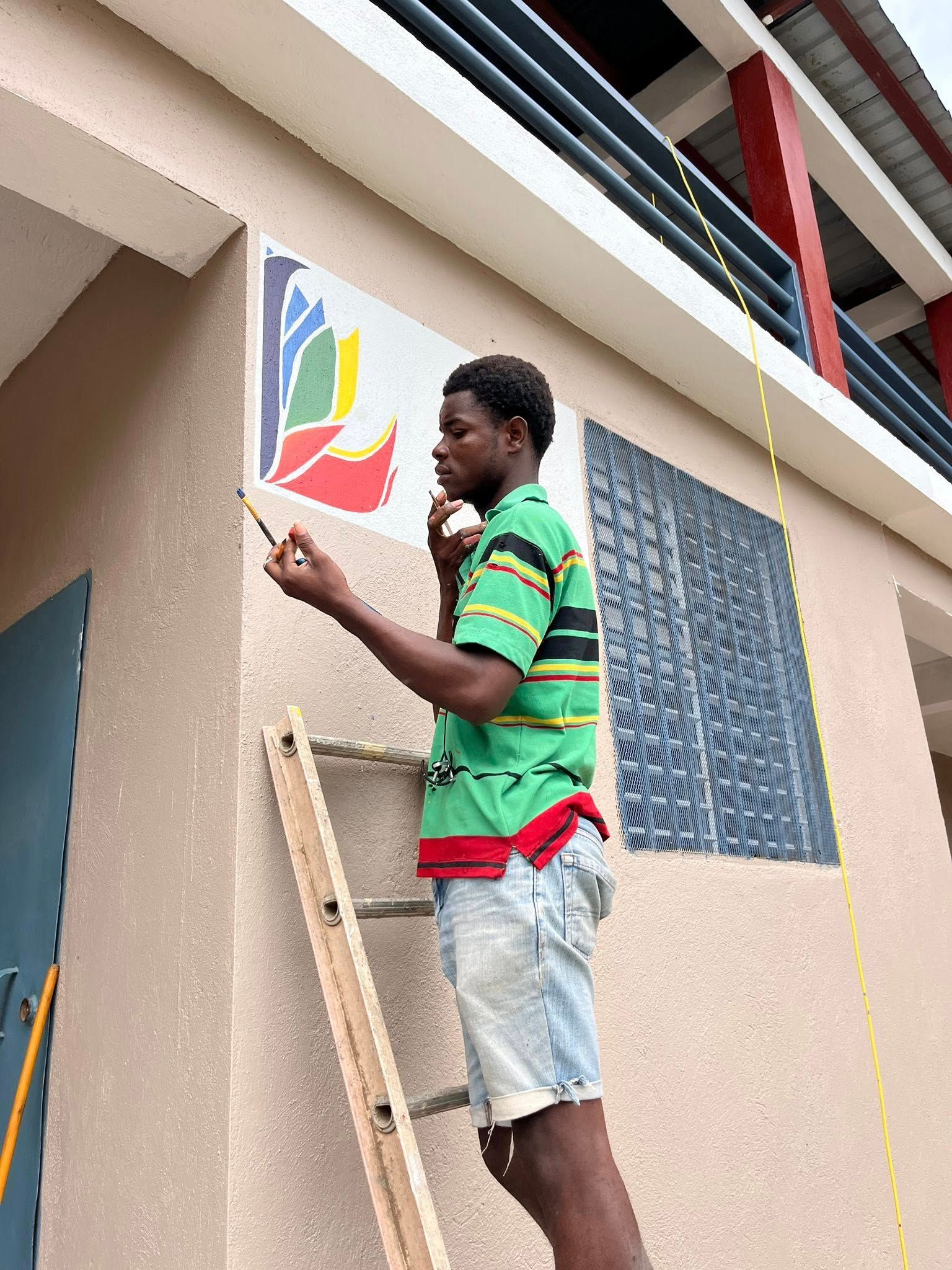Education is every child’s number one priority; It should be ours as well
At the dawn of a new decade, we have just 10 years left to achieve the Agenda 2030. Yet millions of children around the world are not learning what they need to contribute to a more peaceful, prosperous and sustainable world. Unless we make transforming education systems our number one priority, we will be 80 years too late to achieve this goal.
In November 2019, I met a group of young South Sudanese refugees in a school on the outskirts of Kampala, Uganda. Haltingly, they told me about their experiences fleeing their homes and seeking refuge in a foreign place. When I asked them how they felt about being able to go to school again, though, their eyes brightened and out tumbled their hopes and dreams. Like millions of children and young people around the world, education is their number one priority for the future.
It would be easy to assume that education is our global priority, as well. After all, it is a country’s greatest investment in the future. Education has a ripple effect on almost every aspect of development. An educated population is healthier, more productive, more peaceful, and more capable of tackling the great challenges facing our planet, including climate change. This effect is particularly powerful when we educate girls. If every girl in the world received 12 years of education, infant mortality would be cut in half, and the global economy would rise by as much as US $30 trillion. In our interconnected world, these benefits know no borders or boundaries. Education is the cornerstone of a better future for us all.
So it’s alarming that today, 260 million children are still not in school. It’s even more alarming that millions of children who are in school are not learning. More than half the world’s children are unable to read and understand a simple story by age 10. If we continue with business as usual, half the next generation won’t have the skills they need to harness the opportunities of the 21st century. In fact, at current rates of progress, it will be 2111 – well into the 22nd century – by the time the poorest girls in the world can expect to complete 10 years of basic schooling. That’s 80 years after the deadline to meet the Sustainable Development Goals expires.
We urgently need to recognise and prioritise the global learning crisis, and mobilise the resources and political will to get education back on track. Yet education is all but invisible on the world stage. Aid spending on education has been stagnant for nearly a decade, despite a global funding gap of $39 billion. Clearly, that must change.
However, it’s not just a case of investing more money, when business as usual is not working. That’s why the Global Partnership for Education (GPE) supports governments to transform education at systems level, where the impact of change can reach all children.
We are uniquely placed to do this. As a partnership, we mobilize global expertise to identify solutions at country-level, tackle challenges holistically and reduce fragmentation. As a fund, we channel investments to where they will have a catalytic effect to improve learning – be it investing in teacher training, creating conditions for girls to get to and stay in school, distributing textbooks, or modernizing data to drive evidence-based decisions.
Our unique approach gets results. In our partner countries, 77 million more children are in school today than when we began in 2002, including 41 million girls. Our success demonstrates what we all know to be true: that only by working in partnership can we tackle the challenge ahead.
With the clock ticking for millions of children around the world, we need to stop investing in business as usual. GPE has long counted on the UK as a champion for global education, particularly for educating girls. Now more than ever, we need such leadership to make transforming education systems our number one priority for 2030. Millions of children cannot afford to wait an additional 80 years, and neither can we.
Article from Engage Issue 20.
BY ALICE ALBRIGHT CEO OF THE GLOBAL PARTNERSHIP FOR EDUCATION. • June 17, 2021

Alfa Limonade, Haiti For all our people who were deprived of childhood education, the objective of this Alfa programme is to provide the opportunity to become literate. In Haiti, especially in rural areas such as ours, literacy rates are dismal. 44% of Haitian men and 56% of Haitian women are illiterate, but these statistics are far worse in villages and the countryside. (UNESCO) Launched 23 years ago, Alfa uses an excellent participatory text book, Goute Sel, for writing, reading, and comprehension. It was developed specifically for use here in Haiti. We also use Ti Koze Sou Istwa Peyi Ayiti, stories and questions from Haitian history, and Lekti Net Ale, reflections on connecting with the world. Through blackboard instruction and Kaye Kalkil, Alfa participants practise exercises in arithmetic. At the second level we launch group discussion through reading Edikasyon Civik. After long consideration, our team of monitors has established that Alfa must develop its own practical introduction to numeracy for adult learners. Our improved numeracy project must adjust to the situation of Alfa participants. Obviously, in their daily lives our participants constantly face numeracy problems. Having no education, they were unaware of their lack of capacity. Today, through Alfa, they are gaining in literacy, and we should also ensure that, despite their often advanced ages, they also become numerate. They must not lose this gift simply because they have been deprived of the basic human right to education. Through our new tool, Alfa’s market women and peasant farmers will grasp the basics of numeracy, so that they are not lost in the economic situations of their adult lives. They will address these problems with awareness, papers and pencils in their hands - just as others do! Chancy Jacques, Alfa Supervisor, and Antolius Pierre, Alfa monitor in Jede, are collaborating on Alfa’s own book, Kalkil San Limit, with the following objectives: To support our monitors with a good tool for introducing numeracy. To reinforce the capacity of every Alfa participant. To enable participants to reflect productively. To enable participants to calculate well and fast. To enable participants to record their written results. Thus Kalkil San Limit will include the following sections: numeracy, problem solving, geometry, and mental calculation. Numeracy is a key part of the core skill base of a literate individual. In our Haiti, this means the ability to understand and use basic maths in real life situations at home, in the market place, or for agricultural transactions. We are preparing to go to print this summer! By Sarah Grey Alfa Limonade, Haiti

Here we hear from Gabie Aurel who leads the Sonje Ayiti Organization (SAO), our partner in Haiti. They prioritise investing in quality education to break the cycle of poverty, promote long-term economic and social stability, and uplift everyone. It equips children, youth, and adults with the skills to achieve their potential, higher earnings, and better health outcomes. SAO’s work improves community well-being overall and fosters a more resilient and inclusive society. Gabie says,’I am so privileged to grace the path of many inspiring individuals (children, youth, men and women) who share their stories about what education means to them and how it has built their confidence and drastically transformed their lives.’ An example of a life transformed is Rosenie Selmour, a second level participant in ALFA at the Cima Literacy Center in Limonade, Haiti. Here is her testimony: ‘I always felt small when people were reading and writing around me because I couldn't read or write. I was afraid to speak in public, and I was ashamed to say that I couldn't read. Since coming to the Cima Literacy Center, my life has changed. Every day I learn something new. I can read on my own, I can read medical prescriptions, I can read my Creole Bible very well, and even write my children's names on their notebooks and supervise their homework. I am in awe to see how our good education is expressed daily in the form of mutual respect, solidarity, empathy, camaraderie, and how we support and treat each other now. We don't laugh at people if they make mistakes. We correct and we encourage. I remember the first time I read a sentence in front of the class, everyone in the centre was happy and applauded me. I felt proud, it was the first time I felt so valued. What motivates me to come every day? ‘It's my dream to be able to read and write well and to know my fundamental rights. And above all, I feel like I'm not alone. We are a family at Alfa.’ Stories like this fuel SAO’s commitment to invest in quality education throughout Haiti, especially in rural villages where the most vulnerable children, youth, and adults have no access to basic education. SAO’s commitment to breaking the cycle of poverty through quality education promotes greater employment opportunities which lift families out of poverty, thus reducing heavy reliance on social assistance programmes. It boosts economic growth through a skilled workforce, fosters individual well-being, reduces preventable diseases,and improves overall understanding of health. This can prevent diseases, unnecessary deaths and improve overall well-being. Quality education cultivates important cognitive, social, emotional, and communication skills. This reduces conflicts and improves harmony in communities. Additionally, it helps build resilience to recurring difficulties, reduces gender-based violence prevalent in rural communities, and strives to promote gender equality, building stronger communities and societies, enhancing social stability. In sum, quality education for all creates a recurring cycle of inclusive opportunity for all.’ Supporting the Resource Learning Centre in Haiti Until students return to school in December they are learning vocational skills and they themselves are actively involved in site renovation work We are really proud to see this revival take hold with so much passion and responsibility.

In March 2025, The Steve Sinnott Foundation, in partnership with Sonje Ayiti Organisation and local partners, launched a month-long campaign in Haiti to raise awareness of gender-based violence and empower communities to take action. The campaign launched on International Women’s Day (8 March) at the CIMA Community School of Hope, where over 200 people gathered for a vibrant programme of cultural dances, drama, partner presentations and open discussions. Facilitators from SOSPSY, a Haitian non-governmental organisation providing psychosocial support and mental health services to communities affected by trauma, violence, and displacement, guided participants in exploring hidden forms of violence often accepted as normal. Their sessions created a powerful space for reflection and the sharing of personal testimonies. Through interactive workshops and educational games, students learned about gender equality and how to recognise and prevent gender-based violence, as well as how to support peers who may be affected. They asked thoughtful questions, engaged actively and pledged to become ambassadors for non-violence in Haiti. As part of the Positive Periods Programme, 20 girls received 100 reusable sanitary pads in recognition of their participation. Many attendees expressed gratitude and a strong commitment to take action within their communities. A national voice inspires local action On 12 March, the campaign welcomed Jean Jean Roosevelt, one of Haiti’s most celebrated singers and a champion for women’s rights through his lyrics. He engaged boys at CIMA School of Hope in a gender-based violence campaign by producing a music video about the topic, giving them a platform to speak about respect for women and their role in ending violence. Their voices will now join a growing national movement for equality. Positive Periods: sustainable solutions for girls and the planet The campaign also tied into the Positive Periods Programme, now in its fourth year. Thanks to funding from The Foundation, students at CIMA’s sewing workshop are making reusable sanitary pads, uniforms and traditional clothing. In March alone, 237 reusable pads were distributed in schools and at the campaign’s closing ceremony, helping girls stay in class and reducing waste from disposables. So far, 41 students have been trained in sewing, with 20 already earning income from their skills. This programme not only supports menstrual health but also tackles poverty and environmental challenges by promoting cost-effective, sustainable, reusable products. Reusable sanitary pads have helped reduce school absenteeism for more than 1,500 girls while also cutting waste across 19 rural schools. This year, the sewing workshops at CIMA Community School of Hope expanded the Positive Periods Programme, training 41 students, both girls and boys, in pad-making and other skills. Twenty of these students are now earning an income of 1,000 Gourdes (around $8 USD) per uniform, while also producing reusable pads for women and girls who cannot make their own. Through The Foundation, the Learning Resource Centre provides a Sewing Workshop that is equipped with machines and supplies, enabling students, not only to produce pads but also to develop valuable skills. Designed for durability, these pads can be reused for years, reducing costs, limiting import, and providing income-generating opportunities for students. Monitoring and evaluation The project evaluated both implementation and methodology before, during, and after each intervention. Pre-assessments measured participants’ knowledge of gender-based violence, while sessions ensured understanding and post-assessments allowed questions and discussion. Initially, most participants were unfamiliar with gender-based violence, but by the end, they actively engaged in discussions on issues like men’s authority over women and corporal punishment, showing increased awareness and commitment. Follow-up interviews confirmed retention of key information and a willingness to adopt behaviours that help prevent gender-based violence in their communities. In total, the campaign reached more than 500 people directly and an estimated 5,000–10,000 indirectly through community networks, posters, and social media—spreading vital messages of equality and change far beyond the classroom walls. Looking ahead Evaluations showed that most participants entered the campaign with little knowledge of gender-based violence but left with a clearer understanding and determination to act going forward. Through these initiatives, The Steve Sinnott Foundation is helping young people and communities stand together against violence, build sustainable futures ,and create a more equal, hopeful Haiti. This programme is supported by the Soroptimist International Foundation, a Charitable Trust overseen by SI (Soroptimist International) Limited. By Gabrielle Aurel Director of Sonje Ayiti

